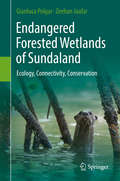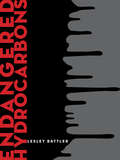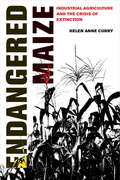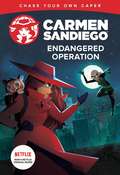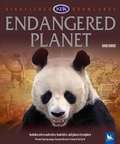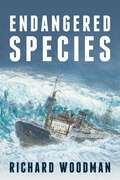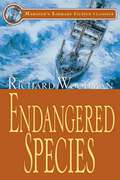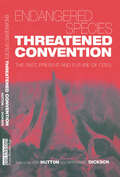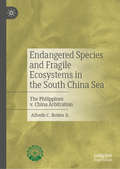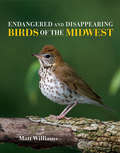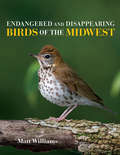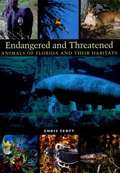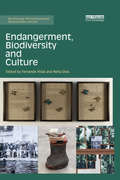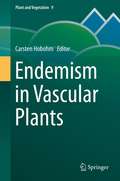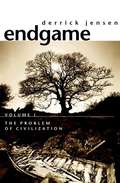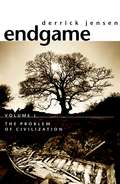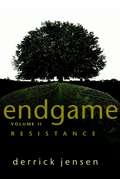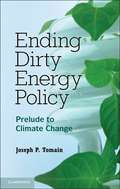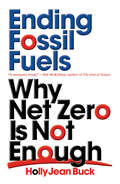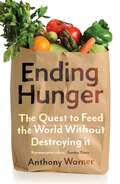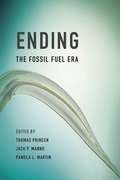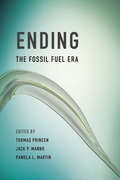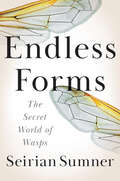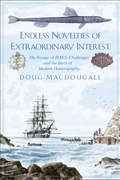- Table View
- List View
Endangered Forested Wetlands of Sundaland
by Gianluca Polgar Zeehan JaafarThis book informs readers on the ecology, ecosystem services, and management of Sundaland wetland ecosystems, discussing the concepts and tools necessary to conserve these imperiled habitats. Sundaland is a biogeographically defined area of South East Asia characterised by an exceptional concentration of endemic species. The unprecedented loss of wetland habitats within Sundaland warrants urgency in implementing conservation actions. The authors are both researchers who have witnessed the ongoing losses of wetland habitats in Sundaland. The first chapter introduces fundamental concepts of ecosystems, ecological processes and ecosystem services of coastal and inland wetlands. The second chapter provides an overview of the global and regional conservation status of these ecosystems. The third chapter advances the importance of wetlands management at the landscape level (drainage basins), and proposes to adopt the concept of Ecotonal Networks (ENTs) as a sustainable management method, within the theoretical framework of Resilience Theory. The fourth chapter showcases potential flagship species that can aid in raising awareness on these endangered but poorly-known ecosystems. The fifth chapter discusses sustainable ecotourism as a viable and profitable industry to manage non-urban wetland areas of Sundaland, while providing specific suggestions for future developments. The book is written for ecosystem managers, conservation scientists, ecologists, and nature enthusiasts. It consists of a coherently arranged set of scientifically accurate tools that consider societal, cultural, and economic factors to succeed in the conservation of the Sundaland wetlands, as well as other wetland habitats in the world.
Endangered Hydrocarbons
by Lesley BattlerFracking – tar-sand runoff – dirty oil extraction. This is the language of our oil-addicted 21st century society: incredibly invasive, blatant in its purpose, and richly embedded in mythological and archetypal symbolism. The ultimate goal of the industry: To core the underworld.Endangered Hydrocarbons, Lesley Battler's first full-length collection of poetry, shows that the language of hydrocarbon extraction, with its blend of sexual imagery, archetype, science, pseudoscience and the purely speculative, can be as addictive as the resource it pursues.Using pastiche and wordplay, Battler shines a floodlight on the absurdity and pervasiveness of production language in all areas of human life in the oil fields, including art, culture and politics. Incorporating texts generated by a multinational oil company, and spliced with a variety of found material (video games, home decor magazines, works by Henry James and Carl Jung), Battler deliberately tampers with her found material, treating it as crude oil—excavating, mixing, and drilling these texts to emulate extraction processes used by the industry.With traces of Dennis Lee's Testament, Larissa Lai's Automaton Biographies, and Adam Dickinson's The Polymers, this lively and refreshing take on a polarizing topic will resonate with readers of contemporary poetry who connect with environmental issues and capitalist critique.
Endangered Maize: Industrial Agriculture and the Crisis of Extinction
by Helen Anne CurryCharting the political, social, and environmental history of efforts to conserve crop diversity. Many people worry that we're losing genetic diversity in the foods we eat. Over the past century, crop varieties standardized for industrial agriculture have increasingly dominated farm fields. Concerned about what this transition means for the future of food, scientists, farmers, and eaters have sought to protect fruits, grains, and vegetables they consider endangered. They have organized high-tech genebanks and heritage seed swaps. They have combed fields for ancient landraces and sought farmers growing Indigenous varieties. Behind this widespread concern for the loss of plant diversity lies another extinction narrative that concerns the survival of farmers themselves, a story that is often obscured by urgent calls to collect and preserve. Endangered Maize draws on the rich history of corn in Mexico and the United States to uncover this hidden narrative and show how it shaped the conservation strategies adopted by scientists, states, and citizens. In Endangered Maize, historian Helen Anne Curry investigates more than a hundred years of agriculture and conservation practices to understand the tasks that farmers and researchers have considered essential to maintaining crop diversity. Through the contours of efforts to preserve diversity in one of the world's most important crops, Curry reveals how those who sought to protect native, traditional, and heritage crops forged their methods around the expectation that social, political, and economic transformations would eliminate diverse communities and cultures. In this fascinating study of how cultural narratives shape science, Curry argues for new understandings of endangerment and alternative strategies to protect and preserve crop diversity.
Endangered Operation (Carmen Sandiego Chase-Your-Own Capers)
by Houghton Mifflin HarcourtJoin Carmen Sandiego and decide where in the world to go next in this globe-trotting, daring caper! Help Carmen save wild animals of all kinds, especially the rare Amur tiger cub kidnapped from you by VILE. With 20 possible endings, your adventures can take you all over the world—or out of the game. Which will you choose?In this choose-your-own-caper story set in the world of Carmen Sandiego, you are a junior zookeeper caring for a rare newborn Amur tiger cub. VILE, in its latest plot, is stealing exotic animals to sell to a billionaire collector, and your charge is cub-napped! Carmen arrives and you decide the best way to get your cub back is to help her defeat VILE and rescue all the animals they&’ve captured. Or do you? Twenty different endings to this story keep readers coming back for more adventures with Carmen Sandiego!
Endangered Planet (Kingfisher Knowledge)
by Tony Juniper David BurnieEndangered Planet is a timely examination of the state of the earth's ecosystems. Today, humans influence every natural habitat on the planet. The consequences can be devastating--dozens of species are wiped out each year, coasts and oceans are fouled with oil spills, and grasslands and forests are destroyed to feed the appetite of modern agriculture. Endangered Planet also reveals how renewable energy, recycling, and wildlife protection will play a key role in the survival of Earth.
Endangered Species
by Richard WoodmanCaptain John Mackinnon and his ship, the Matthew Flinders, are embarking on their last voyage. Both endangered species, they symbolize the irreversible, quiet decline of the British merchant fleet. But this journey to Hong Kong will prove to be anything but quiet. Internal tensions among the crew provoke unrest and lead to a navigation error, steering them right into the violent, destructive path of Typhoon David. Suddenly the crew of the Matthew Flinders are no longer fighting for their livelihood, but for their very lives.Yet on the same seas, other lives are at stake as well. When Mackinnon feels compelled to rescue a boatload of Vietnamese refugees fleeing to Hong Kong, he sets off an explosive chain of events that will lead to mutiny, confrontation with Hong Kong authorities, and the greatest challenge of his career.
Endangered Species (Mariners Library Fiction Classic)
by Richard WoodmanCaptain John Mackinnon and his ship, the Matthew Flinders, are embarking on their last voyage. Both endangered species, they symbolize the irreversible, quiet decline of the British merchant fleet. But this journey to Hong Kong will prove to be anything but quiet. Internal tensions among the crew provoke unrest and lead to a navigation error, steering them right into the violent, destructive path of Typhoon David. Suddenly the crew of the Matthew Flinders are no longer fighting for their livelihood, but for their very lives.Yet on the same sears, other lives are at stake as well. When Mackinnon feels compelled to rescue a boatload of Vietnamese refugees fleeing to Hong Kong, he sets off an explosive chain of events that will lead to mutiny, confrontation with Hong Kong authorities, and the greatest challenge of his career.
Endangered Species Threatened Convention: The Past, Present and Future of CITES, the Convention on International Trade in Endangered Species of Wild Fauna and Flora
by Barnabas DicksonThe Convention on International Trade in Endangered Species (CITES) is the best known and most controversial of international conservation treaties. Since it came into force 25 years ago, debate has raged over its most basic assumptions. CITES treats the international trade in wildlife as the most important threat to the continued existence of wild species. It offers a prescription of trade bans and restrictions for endangered species. However, it is now generally acknowledged that for most species habitat loss is a much more significant threat. Some argue that the CITES remedy actually exacerbates the problem by removing the incentive to conserve wildlife habitat. This collection of essays, the first of its kind, charts the controversies and changes within CITES. It provides case studies of the way CITES has dealt with particular species and notes the growing role of the South in shaping the direction of the treaty. It considers the role of sustainable use, the precautionary principle and unilateralism within CITES. Finally, it examines options for the future of CITES. Implicit within a number of the contributions is the recognition that questions of wildlife conservation cannot be divorced from wider issues of land use, development and social justice. This book provides an essential resource for policy makers, practitioners, academics and students concerned with conservation, development and trade.
Endangered Species and Fragile Ecosystems in the South China Sea: The Philippines v. China Arbitration
by Alfredo C. Robles, Jr.This book presents an in-depth analysis of the environmental issues raised in the South China Sea Arbitration Awards, which have not attracted as much attention in the Philippines as the “nine-dash line”. Specifically it focuses on the conservation of endangered species and the conservation of fragile ecosystems in the South China Sea. The aims of the book are two-fold. First, it seeks to explain the Philippine perspective on the environmental aspects of its dispute with China. The book reconstructs the Philippine perspective in part by consulting several dozens of the hundreds of documents that the Philippines submitted to the Tribunal. Some of these documents were classified as secret and would thus have never been made available to the public had it not been for the arbitration. Second, it attempts to explain the decisions of the Tribunal on jurisdiction and admissibility as well as the decisions on the merits of the dispute. The book does this by consulting not only the two Awards but also the hundreds of pages of transcripts, expert reports, supplemental submissions and written responses by the Philippines to questions posed by the Tribunal.
Endangered and Disappearing Birds of the Midwest
by Matt WilliamsFrom the birds who wake us in the morning with their cheerful chorus to those who flock to our feeders and brighten a gloomy winter day, birds fascinate us with their lively and interesting behavior and provide essential services from controlling pest populations to pollinating crops. And yet for all the benefits they provide, many species across Minnesota, Wisconsin, Illinois, Iowa, Indiana, Michigan, and Ohio are in danger of extinction due to loss of habitat, agricultural expansion, changing forest conditions, and interactions with humans. In Endangered and Disappearing Birds of the Midwest, Matt Williams profiles forty of the most beautiful and interesting birds who winter, breed, or migrate through the Midwest and whose populations are most in danger of disappearing from the region. Each profile includes the current endangered status of the species, a description of the bird's vocal and nesting patterns, and tips to help readers identify them, along with stunning color images and detailed migration maps. An exquisite and timely examination of our feathered friends, Endangered and Disappearing Birds of the Midwest is a call to action to protect these vulnerable and gorgeous creatures that enliven our world.
Endangered and Disappearing Birds of the Midwest
by Matt WilliamsThis bird-lover&’s guide to spotting the endangered birds of the Midwest features fascinating information, helpful maps, and stunning color photography.Birds captivate us with their lively behavior and colorful beauty. They also enhance our environments in many ways, from controlling pest populations to pollinating crops. Yet, sadly, many species of birds across Minnesota, Wisconsin, Illinois, Iowa, Indiana, Michigan, and Ohio are in danger of extinction due to loss of habitat, agricultural expansion, changing forest conditions, and encounters with humans.In Endangered and Disappearing Birds of the Midwest, conservationist and endangered species expert Matt Williams profiles forty of the most beautiful and fascinating birds who winter, breed, or migrate through the Midwest and whose populations are most in danger of disappearing from the region. Each profile includes the current endangered status of the species, a description of the bird's vocal and nesting patterns, and tips to help readers identify them, along with stunning color images and detailed migration maps. An exquisite and timely examination of our feathered friends, Endangered and Disappearing Birds of the Midwest is a call to action to protect these vulnerable and gorgeous creatures that enliven our world.
Endangered and Threatened Animals of Florida and Their Habitats
by Chris ScottA biological crossroads where temperate gives way to tropical and east blends into west, Florida has over twenty-five primary habitat types, several of which are unique to the state. Within these richly varied natural communities lives an astonishing abundance of animals and plants, making Florida one of the United States' most biologically diverse regions. At the same time, sadly, Florida is also one of the country's most ecologically imperiled regions, second only to California in the number of its animals and plants that have been federally designated as endangered or threatened. This fully illustrated book is a comprehensive, yet convenient and easy-to-understand guide to Florida's endangered and threatened animals and the habitats that support them. Chris Scott covers all 71 species, subspecies, or populations of mammals, birds, reptiles, fish, crustaceans, insects, corals, and mollusks. His species accounts describe each animal's listed status, identifying characteristics, historical and current distribution, biology, current threats, and conservation efforts. To make the crucial link between animals and their habitats, Scott also includes extensive discussions of Florida's natural regions; human impacts on the environment, including habitat destruction, pollution, and the introduction of invasive, nonnative species; and ongoing efforts to conserve and restore native plant and animal communities. With this wealth of information available in no other single volume, everyone who cares about the natural environment can help preserve one of America's biological treasurehouses.
Endangerment, Biodiversity and Culture (Routledge Environmental Humanities)
by Fernando Vidal and Nélia DiasThe notion of Endangerment stands at the heart of a network of concepts, values and practices dealing with objects and beings considered threatened by extinction, and with the procedures aimed at preserving them. Usually animated by a sense of urgency and citizenship, identifying endangered entities involves evaluating an impending threat and opens the way for preservation strategies. Endangerment, Biodiversity and Culture looks at some of the fundamental ways in which this process involves science, but also more than science: not only data and knowledge and institutions, but also affects and values. Focusing on an "endangerment sensibility," it encapsulates tensions between the normative and the utilitarian, the natural and the cultural. The chapters situate that specifically modern sensibility in historical perspective, and examine central aspects of its recent and present forms. This timely volume offers the most cutting-edge insights into the Environmental Humanities for researchers working in Environmental Studies, History, Anthropology, Sociology and Science and Technology Studies.
Endemism in Vascular Plants
by Carsten HobohmThe book is the first comprehensive analysis of the macroecology and geobotany of endemic vascular plants with case-studies and analyses from different regions in the world. Endemism is a pre-extinction phenomenon. Endemics are threatened with extinction. Due to international nature conservation policies and due to the perception of the public the concept's importance is increasing. Endemism can result from different biological and environmental processes. Depending on the process conservation measures should be adapted. Endemic vascular plant taxa, in the setting of their species composition and vegetation types are important features of landscapes and indicators of the quality of relating habitats. The book is an important basis for biologists, ecologists, geographers, planners and managers of nature reserves and national parks, and people generally interested in nature conservation and biogeography of vascular plants.
Endgame, Volume 1: The Problem of Civilization
by Derrick JensenEndgame, Volume 1 builds on a series of simple but increasingly provocative premises: for example, "The needs of the natural world are more important than the needs of any economic system" and "Love does not imply pacifism." A brilliant weaving together of piercing analysis and elegant prose, Endgame leads us to see that we can re-imagine our world. Derrick Jensen is the acclaimed author of A Language Older Than Words and The Culture of Make Believe, among many others. Author, teacher, activist, small farmer, and leading voice of uncompromising dissent, he regularly stirs auditoriums across the country with revolutionary spirit. Jensen holds a degree in creative writing from Eastern Washington University, a degree in mineral engineering physics from the Colorado School of Mines, and has taught at Eastern Washington University and Pelican Bay State Prison.
Endgame, Volume 1: The Problem of Civilization
by Derrick JensenThe long-awaited companion piece to Derrick Jensen's immensely popular and highly acclaimed works A Language Older Than Words and The Culture of Make Believe. Accepting the increasingly widespread belief that industrialized culture inevitably erodes the natural world, Endgame sets out to explore how this relationship impels us towards a revolutionary and as-yet undiscovered shift in strategy. Building on a series of simple but increasingly provocative premises, Jensen leaves us hoping for what may be inevitable: a return to agrarian communal life via the disintegration of civilization itself.
Endgame, Volume 2: Resistance
by Derrick JensenWhereas Volume 1 of Endgame presents the problem of civilization, Volume 2 of this pivotal work illustrates our means of resistance. Incensed and hopeful, impassioned and lucid, Endgame leapfrogs the environmental movement's deadlock over our willingness to change our conduct, focusing instead on our ability to adapt to the impending ecological revolution.
Ending Dirty Energy Policy
by Joseph P. TomainClimate change presents the United States, and the world, with regulatory problems of a magnitude, complexity and scope unseen before. The United States, however, particularly after the mid-term elections of 2010, lacks the political will necessary to aggressively address climate change. Most current books focus on climate change. Ending Dirty Energy Policy argues that the US will not adequately address climate change until it transforms its fossil fuel energy policy. Yet there are signs that the country will support the transformation of its century-old energy policy from one that is dependent on fossil fuels to a low-carbon energy portfolio. A transformative energy policy that favors energy efficiency and renewable resources can occur only after the US has abandoned the traditional fossil fuel energy policy, has redesigned regulatory systems to open new markets and promoted competition among new energy providers, and has stimulated private-sector commercial and venture capital investment in energy innovations that can be brought to commercial scale and marketability.
Ending Fossil Fuels: Why Net Zero is Not Enough
by Holly Jean BuckEnding the fossil fuel industry is the only credible path for climate policyAround the world, countries and companies are setting net-zero carbon emissions targets. But what will it mean if those targets are achieved? One possibility is that fossil fuel companies will continue to produce billions of tons of atmospheric CO2 while relying on a symbiotic industry to scrub the air clean. Focusing on emissions draws our attention away from the real problem: the point of production.The fossil fuel industry must come to an end but will not depart willingly; governments must intervene. By embracing a politics of rural-urban coalitions and platform governance, climate advocates can build the political power needed to nationalize the fossil fuel industry and use its resources to draw carbon out of the atmosphere.
Ending Hunger: The quest to feed the world without destroying it
by Anthony WarnerNutritionists tell you to eat more fish. Environmentalists tell you to eat less fish. Apparently they are both right. It's the same thing with almonds, or quinoa, or a hundred other foods. But is it really incumbent on us as individuals to resolve this looming global catastrophe? From plastic packaging to soil depletion to flatulent cows, we are bombarded with information about the perils of our food system. Drawing on years of experience within the food industry, Anthony Warner invites us to reconsider what we think we know. In Ending Hunger, he uncovers the parallels between eating locally and 1930s fascism, promotes the potential for good in genetic modification and dispels the assumption that population growth is at the heart of our planetary woes.
Ending the Fossil Fuel Era
by Thomas Princen Pamela L. Martin Jack P. MannoNot so long ago, people North and South had little reason to believe that wealth from oil, gas, and coal brought anything but great prosperity. But the presumption of net benefits from fossil fuels is eroding as widening circles of people rich and poor experience the downside.A positive transition to a post-fossil fuel era cannot wait for global agreement, a swap-in of renewables, a miracle technology, a carbon market, or lifestyle change. This book shows that it is now possible to take the first step toward the post-fossil fuel era, by resisting the slow violence of extreme extraction and combustion, exiting the industry, and imagining a good life after fossil fuels. It shows how an environmental politics of transition might occur, arguing for going to the source rather than managing byproducts, for delegitimizing fossil fuels rather than accommodating them, for engaging a politics of deliberately choosing a post-fossil fuel world. Six case studies reveal how individuals, groups, communities, and an entire country have taken first steps out of the fossil fuel era, with experiments that range from leaving oil under the Amazon to ending mountaintop removal in Appalachia.
Ending the Fossil Fuel Era
by Thomas Princen Pamela L. Martin Jack P. MannoNot so long ago, people North and South had little reason to believe that wealth from oil, gas, and coal brought anything but great prosperity. But the presumption of net benefits from fossil fuels is eroding as widening circles of people rich and poor experience the downside.A positive transition to a post-fossil fuel era cannot wait for global agreement, a swap-in of renewables, a miracle technology, a carbon market, or lifestyle change. This book shows that it is now possible to take the first step toward the post-fossil fuel era, by resisting the slow violence of extreme extraction and combustion, exiting the industry, and imagining a good life after fossil fuels. It shows how an environmental politics of transition might occur, arguing for going to the source rather than managing byproducts, for delegitimizing fossil fuels rather than accommodating them, for engaging a politics of deliberately choosing a post-fossil fuel world. Six case studies reveal how individuals, groups, communities, and an entire country have taken first steps out of the fossil fuel era, with experiments that range from leaving oil under the Amazon to ending mountaintop removal in Appalachia.
Ending the Fossil Fuel Era (The\mit Press Ser.)
by Thomas Princen Pamela L. Martin Jack P. MannoA provocative call for delegitimizing fossil fuels rather than accommodating them, accompanied by case studies from Ecuador to Appalachia and from Germany to Norway.Not so long ago, people North and South had little reason to believe that wealth from oil, gas, and coal brought anything but great prosperity. But the presumption of net benefits from fossil fuels is eroding as widening circles of people rich and poor experience the downside.A positive transition to a post-fossil fuel era cannot wait for global agreement, a swap-in of renewables, a miracle technology, a carbon market, or lifestyle change. This book shows that it is now possible to take the first step toward the post-fossil fuel era, by resisting the slow violence of extreme extraction and combustion, exiting the industry, and imagining a good life after fossil fuels. It shows how an environmental politics of transition might occur, arguing for going to the source rather than managing byproducts, for delegitimizing fossil fuels rather than accommodating them, for engaging a politics of deliberately choosing a post-fossil fuel world. Six case studies reveal how individuals, groups, communities, and an entire country have taken first steps out of the fossil fuel era, with experiments that range from leaving oil under the Amazon to ending mountaintop removal in Appalachia.
Endless Forms: The Secret World of Wasps
by Seirian Sumner“A book that draws us in to the strange beauty of what we so often run away from.” — Robin Ince, author of The Importance of Being InterestedIn this eye-opening and entertaining work of popular science in the spirit of The Mosquito, Entangled Life, and The Book of Eels, a leading behavioural ecologist transforms our understanding of wasps, exploring these much-maligned insects’ secret world, their incredible diversity and complex social lives, and revealing how they hold our fragile ecosystem in balance.Everyone worries about the collapse of bee populations. But what about wasps? Deemed the gangsters of the insect world, wasps are winged assassins with formidable stings. Conduits of Biblical punishment, provokers of fear and loathing, inspiration for horror movies: wasps are perhaps the most maligned insect on our planet. But do wasps deserve this reputation?Endless Forms opens our eyes to the highly complex and diverse world of wasps. Wasps are 100 million years older than bees; there are ten times more wasp species than there are bees. There are wasps that spend their entire lives sealed inside a fig; wasps that turn cockroaches into living zombies; wasps that live inside other wasps. There are wasps that build citadels that put our own societies to shame, marked by division of labor, rebellions and policing, monarchies, leadership contests, undertakers, police, negotiators, and social parasites. Wasps are nature’s most misunderstood insect: as predators and pollinators, they keep the planet’s ecological balance in check. Wasps are nature’s pest controllers; a world without wasps would be just as ecologically devastating as losing the bees, or beetles, or butterflies.Wasps are diverse and beautiful by every measure, and they are invaluable to planetary health, Professor Sumner reminds us; we’d do well to appreciate them as much as their cuter cousins, the bees.
Endless Novelties of Extraordinary Interest: The Voyage of H.M.S. Challenger and the Birth of Modern Oceanography
by Doug MacdougallA gripping tale of exploration aboard H.M.S. Challenger, an expedition that laid the foundations for modern oceanography From late 1872 to 1876, H.M.S. Challenger explored the world’s oceans. Conducting deep sea soundings, dredging the ocean floor, recording temperatures, observing weather, and collecting biological samples, the expedition laid the foundations for modern oceanography. Following the ship’s naturalists and their discoveries, earth scientist Doug Macdougall engagingly tells a story of Victorian-era adventure and ties these early explorations to the growth of modern scientific fields. In this lively story of discovery, hardship, and humor, Macdougall examines the work of the expedition’s scientists, especially the naturalist Henry Moseley, who rigorously categorized the flora and fauna of the islands the ship visited, and the legacy of John Murray, considered the father of modern oceanography. Macdougall explores not just the expedition itself but also the iconic place that H.M.S. Challenger has achieved in the annals of ocean exploration and science.
